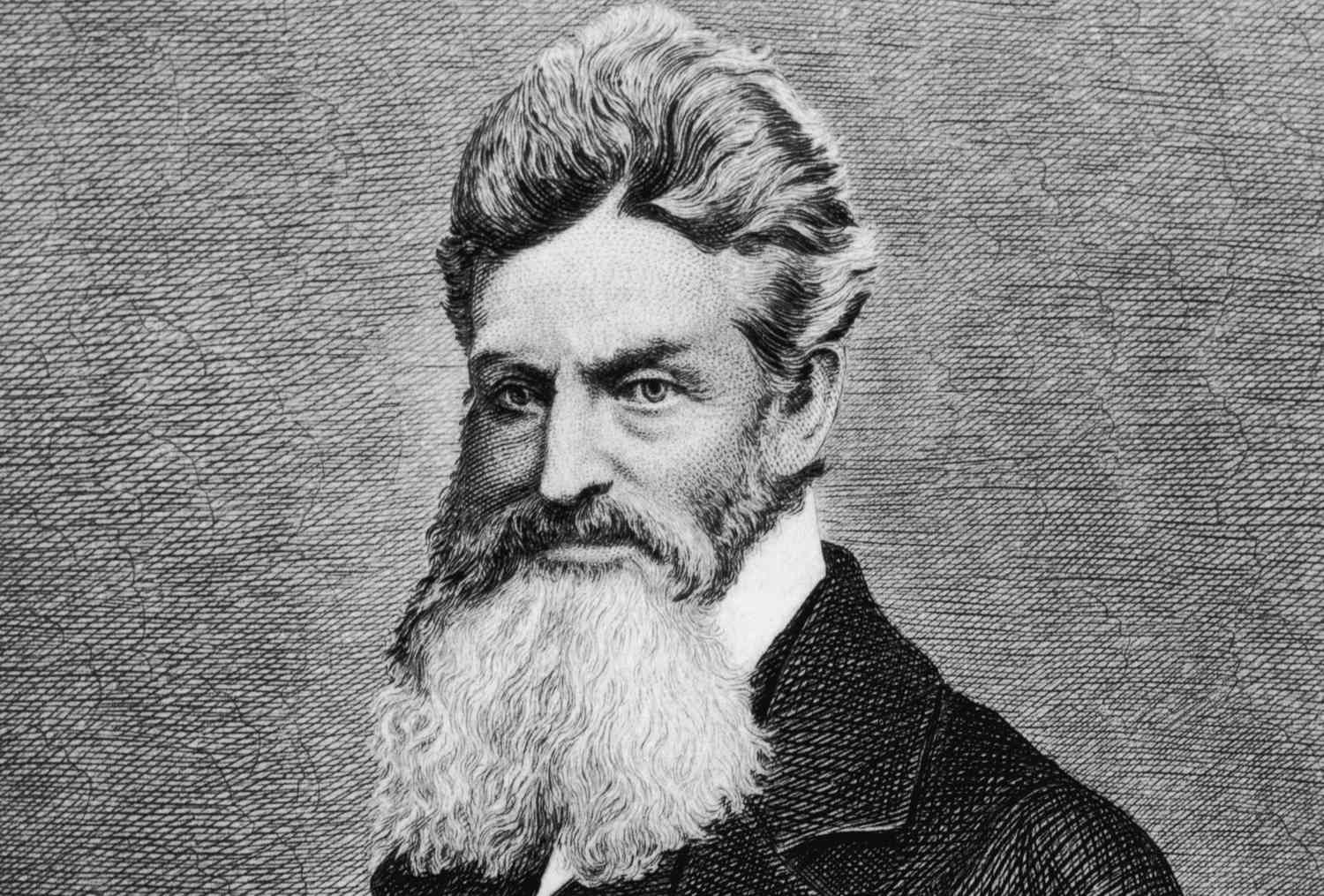John Brown

Portrait of John Brown with intense gaze and long white beard
Biography
Born in 1800 in Torrington, Connecticut, John Brown was raised in a deeply religious, antislavery household. He spent much of his life struggling as a farmer, tanner, and businessman, but it was in Kansas during the 1850s that he would gain national attention as a militant abolitionist willing to take up arms against proslavery forces.
Brown's raid on Harpers Ferry in 1859 aimed to ignite a slave uprising by seizing a federal armory and distributing weapons to enslaved people. Though the plan failed and Brown was captured, tried, and hanged, his execution galvanized abolitionist sentiment in the North and provoked fear and outrage in the South.
Unlike indiscriminate terrorists, Brown spared innocents and took pains to protect hostages during the raid. His use of violence was targeted at the institution of slavery itself, which denied Black Americans their humanity and freedom. Brown’s life and death stirred a nation on the brink of war—and reminded it that justice, once delayed too long, might demand desperate measures.
To some, he was a madman and traitor. To others, a prophet and liberator. But whatever one believes about his methods, John Brown forced the country to confront the moral crisis of slavery with clarity, urgency, and blood.
John Brown shook the conscience of a divided nation. He showed that moral clarity isn’t always polite—and that sometimes, justice requires us to break with the status quo. His legacy continues to challenge us: Are we willing to act as bravely for what’s right as he did?
?
Why was John Brown's raid at Harpers Ferry so significant to the onset of the Civil War?
What is the difference between terrorism and revolution, and where does John Brown fit?
Why did some Northern abolitionists support Brown while others distanced themselves?
What did John Brown’s trial and execution reveal about American justice before the Civil War?
How have modern movements interpreted John Brown's legacy in the context of civil resistance?
Could John Brown’s methods ever be justified in today’s society?
How does John Brown’s story challenge or reinforce your understanding of moral courage?
Dig Deeper
Dive into the controversial life of John Brown and explore whether his violent stand against slavery was an act of terrorism or heroism.
Discover more

Sojourner Truth
Sojourner Truth was a formerly enslaved woman who became one of the most powerful voices in American history for abolition, women’s rights, and racial justice.

Abraham Lincoln
Born in a Kentucky log cabin and shaped by hardship, Abraham Lincoln rose to lead the nation through its greatest moral and constitutional crisis—the Civil War.

Henry David Thoreau
Henry David Thoreau was a writer, philosopher, and naturalist who believed that a good life requires conscience, simplicity, and a deep relationship with nature.
Further Reading
Stay curious!
